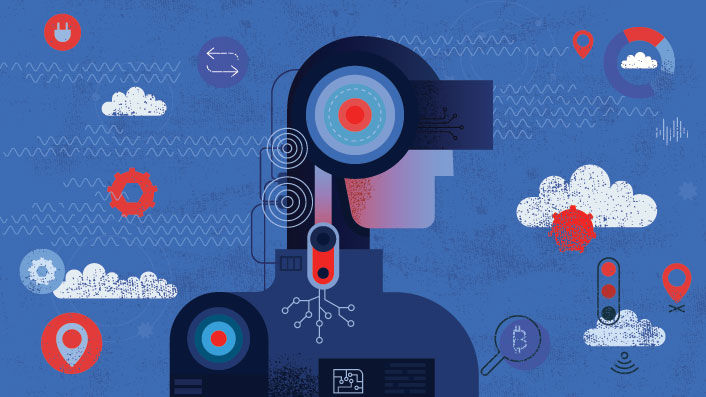Molecule.one Wins Standard Industries Chemical Innovation Challenge

$1 million prize awarded
Standard Industries, together with Grace has announced Molecule.one as the winner of the Standard Industries Chemical Innovation Challenge: Advancing AI-Assisted Molecular Synthesis. This prestigious award comes with a $1 million prize, recognizing Molecule.one's cutting-edge AI platform designed to accelerate the development and production of pharmaceuticals, including cardiovascular and oncology drugs, antibiotics, and antivirals.
Addressing a Major Challenge in Chemistry
The Challenge was launched last year to tackle one of the most time-consuming problems in chemistry: chemical retrosynthesis. This process involves chemists working backwards to deconstruct a desired molecule through iterative steps until they reach readily available starting materials. Traditionally, this manual task has been a bottleneck, prone to human error and bias. By inviting companies, academics, and entrepreneurs worldwide to propose innovative AI and machine learning solutions, Standard and Grace aimed to revolutionize this critical aspect of chemical synthesis.
Molecule.one's Winning Platform
Molecule.one, with a highly automated lab in Warsaw, Poland, and a presence in Boston, Massachusetts, consists of 29 skilled chemists and engineers. Their innovative deep learning platform predicts multiple paths to synthesize complex molecules, leveraging large datasets and AI to make chemical production faster, cheaper, and more sustainable.
The Competition and Judging Process
More than 30 teams entered the Challenge, with an impartial panel of judges from academia and business, experts in organic synthesis, computationally-assisted synthesis, and computational chemistry, overseeing the competition. The evaluation process was rigorous, involving three phases:
- Phase 1: Detailed white papers from over 30 teams were reviewed, narrowing the field to 10 semifinalists, each receiving $10,000.
- Phase 2: The top 10 teams proposed over 100 synthetic routes, totaling approximately 600 individual chemical steps. The field was further narrowed to four finalists, each receiving $100,000.
- Phase 3: The final round involved a 90-minute live session where each team’s platform was challenged with six molecules, including a particularly daunting "challenge molecule" that had never been successfully synthesized before.
Innovative Outcomes and Diverse Finalists
The AI platforms developed by different teams generated efficient and potentially useful synthesis plans for complex molecules, demonstrating an ability to creatively "think backwards" and propose viable routes. The diversity of participants was impressive, with finalists including established small companies from the US, Europe, and South Asia, as well as a dynamic team of graduate students and a post-doc from Yale University. All teams shared impressive backgrounds in organic synthesis and computational chemistry.
What Set Molecule.one Apart?
Molecule.one stood out by consistently generating plausible and feasible synthetic routes, successfully tackling the challenge molecule and suggesting a viable pathway for its synthesis. Their platform offers significant synergies with the Grace process R&D team, paving the way for a strong and collaborative partnership.
Also, we’ve all experienced the hallucinations that the large language models and AI-based image generators are prone to. One of the things that set Molecule.One apart from the other finalists was the relative lack of hallucinations in the chemical pathways that it generated. Just as AI tools have produced images with odd-looking words or hands with more than five fingers, AI-generated reactions can produce pathways with chemically unreasonable steps (e.g. a carbon atom appearing from nowhere). The winning team had very low hallucinations, and produced chemically-reasonable results, even for new pathways.
Future Applications
The potential applications of Molecule.one's platform are vast. It can be immediately applied to challenging synthetic routes for current drug candidates, mitigating risks associated with scaling up production. Additionally, the platform opens doors to engaging with prospective customers facing similar challenges, assisting companies with pre-clinical drug candidates where existing synthetic routes are unsuitable for larger scale production.
Reflections on the Challenge
Overall, the Challenge was both demanding and rewarding. Bob Hughes, R&D Fellow at Grace said, “The end result passed my expectations, and I strongly believe we will be able to build on the winning platform.” Hughes also highlighted the collaborative spirit of the competition, noting, “During the final round, I thoroughly enjoyed working with each team in helping them refine their platforms. The individual team members were very engaging and truly wanted to make significant improvements. This was an exercise that will continue to be a highlight in my career.”
This Challenge has not only advanced the automation of a complex task but also empowered chemists, accelerated innovation, and unlocked new possibilities in the field of molecular synthesis.
Keep reading for more about chemical synthesis and the Standard Industries Challenge:
Standard Industries Challenge Puts AI and ML to Work for Chemistry
https://grace.com/blog/standard-industries-challenge-puts-ai-and-ml-to-work-for-chemist/
Could AI-enabled Retrosynthesis Lead to the Next Big Breakthrough?
https://grace.com/blog/could-ai-enabled-retrosynthesis-lead-to-the-next-big-breakthrough/
Challenge Accepted! Teams of Innovators Compete to Revolutionize Chemical Synthesis
https://grace.com/blog/challenge-accepted--teams-of-innovators-compete-to-revolutionize/